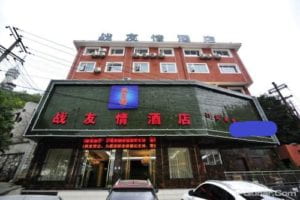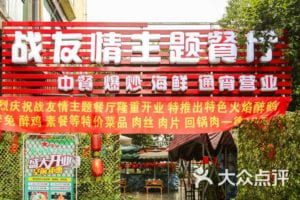Doubtless, informal economy is essential part of economy in China. Although claimed as socialism, the current economic system is a hybrid involving planned economy and market-oriented economy. After the reform of state-owned enterprises in 1990s, laid-off workers started to earn their own livelihood on the streets. It opens up the booming of street vending that many of my generation have experienced during our childhood.
After almost 20-year development, street venders are no longer only those who were laid off in 1990s, but their children, migrant workers, and veterans. Veterans and their families prevail in street food, family-run restaurants in small scale, and family inns in the rural-urban continuum. A few years ago, almost in every city before the city appearance management gains popularity among administers, there would always be restaurants and street food named after “veterans’ friendship” (Zhanyouqing), such as Veterans’ Friendship BBQ. Often, for those informal economic practices, the husbands or the fathers are veterans, but the business is operated by the whole family including wives, parents, and even parents-in-law.



Military service in China is volunteer. Veterans from poor families firstly consider performing military service when they become high school graduate. If they are unlikely to be admitted in universities or colleges, their parents probably would send those boys to army, as army is regarded as a good place to make tough men and make sure they wouldn’t go wrong. However, military training doesn’t include professional training or career development. After they leave the army with subsidies (usually several thousand yuan), those veterans neither have a higher academic degree nor professional skills. Therefore, it is hard for them to apply for a job in the formal economy, though the policy might grant them some benefits.
Another factor is traditional culture requires males to establish their own career and start a family as the symbol that boys become men. When they leave the army, they are in their twenties at which age their parents would push them to start a family. If so, they are eager to start a career to support their own families. If not, they still need a career to fulfill the requirements in the “marriage market” (not a monetary market, but a series of conditions to find a “nice” girl to start a family).
When suffering from finding a job in the formal economy, they tend to utilize their subsidies in street vending by their own. Informal economy requires low-level skills and represents “work more and get more”, which would fit in aptly veterans’ conditions.
Leave a Reply